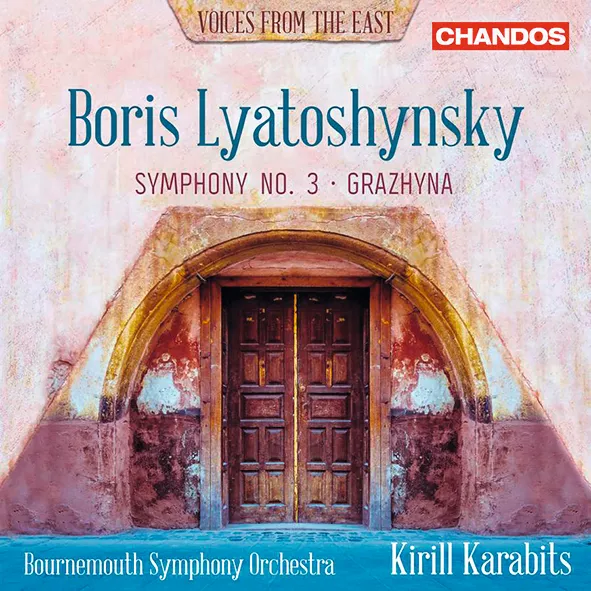
Lyatoshynsky Symphony No. 3; Grazhyna Bournemouth Symphony Orchestra/Kirill Karabits Chandos CHSA 5233 (hybrid CD/SACD) 63:23 mins
These works sound as if written at the turn of the 20th century, certainly by an admirer of Scriabin’s Divine Poem. Both, in fact, date from the 1950s. A pupil of Glière’s (whose mighty programmatic Third Symphony, Ilya Muromets, may also have been an inspiration), Ukrainian Boris Lyatoshynsky was equally a master of the late-Romantic symphony orchestra, writing vividly colourful and boldly dramatic music evocative of modern Hollywood blockbuster films.
Symphony No. 3, intended to depict the triumph of peace after the devastation of war, includes between two violent yet arresting allegros a reflective and beautifully atmospheric slow movement, and finally culminates in a finale, the noble peroration of which involves an Orthodox-style chant theme and bells – which so displeased the Soviet authorities that Lyatoshynsky replaced it with something more obviously upbeat. Kirill Karabits opts for the original more solemn finale, which gives the Symphony more gravitas than is evident in its only other recording (on Naxos). The ‘symphonic ballad’ Grazhyna is of a similar ilk, but even more downbeat with a final mournful funeral march for Grazhyna who has died in battle for her Lithuanian people. The Bournemouth Symphony play the music with polish and full commitment under Karabits’s sure direction.
Daniel Jaffé